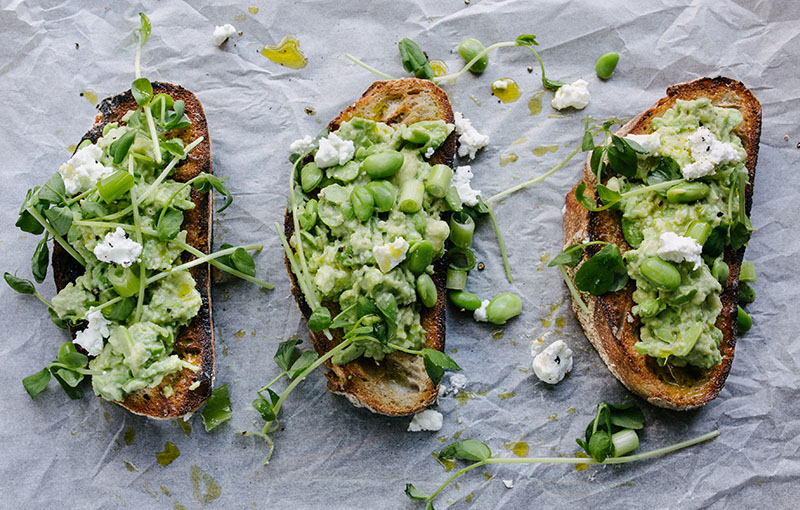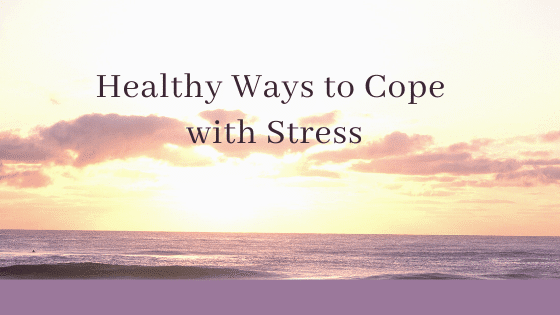Healthy Ways to Cope with Stress
Let’s talk about some healthy ways to cope with stress. When we are first faced with an emergency, our stress hormones kick in, and we are often in that “flight or fight mode.” The most reinforced or easiest coping mechanisms also tend to be the quickest for us, whether it be food, alcohol, online shopping, or something else.
After a while, with many coping mechanisms, they may not be the healthiest in the long term, and unfortunately, with our current situation, we may need to cope with the stresses for at least a year or two. So, I want to discuss some healthy coping mechanisms you might already be doing and some you may want to try. And some that you might have done in the past but have not gotten back into them for a while.
How Does Stress Affect Our Health?
When talking about the health effects of stress, we can divide that into short-term and long-term impacts. The short-term effects may be rapid heartbeat, shallow breathing, and a bottomless pit in our stomach.
Unless something happens short term, like a car accident or something else in the immediate moment, it does not cause damage to our health like the effects of long-term stress, which can lead to chronic inflammation, which can increase the incidence of heart disease, diabetes, cancer, autoimmune health conditions, GI disease, cancer, and obesity.
How Does Stress Affect IBS?
Times of stress can increase the symptoms of IBS for many people. These symptoms may include cramping, bloating, diarrhea, constipation, inflammation, and loss of appetite.
What does this mean for us as we go through this situation?
How do we manage our stress?
If we are in this stressful event for the long haul, how can we reduce the impact of inflammation and chronic health conditions and limit the reliance on less healthy coping methods?
For many people who have IBS symptoms that are linked to stress, it can be beneficial to work with a psychologist who specializes in gut-directed hypnotherapy to help reduce symptoms.
Other people may need additional help from a Fodmap dietitian. I offer a program on digestive wellness.

Eating Habits During Stress
Eating for Stress Management
For many people, food is a comfort during times of stress. Not only is it the thing we are handed when we are going through a hard time, like being handed a cookie when we scrape our knee, but it also releases pleasure hormones like dopamine and serotonin that make us feel better. And who doesn’t want to feel better during times of stress?
During times of stress, there is a lot of eating more quickly because we are in the “flight or fight response,” there may also be a lot of reaching for food because we aren’t paying attention.
Tips to Reduce Stress-Related Eating
You might have noticed that I did not mention “tips to stop stress eating.” That is because food should not be all or nothing, good or bad. And that goes for food behavior also. Just like all foods can fit into a healthy lifestyle, a less nutritious food behavior might be used to cope occasionally. Learning to replace food with other healthy non-food coping mechanisms is a good practice. And you will get in the habit of using food as a stress relief more and more. This is especially important for long periods of stress like this.
Eating slower and paying more attention to our food when we eat will help us be more mindful and enjoy our food in the moment.
How Does Food and Nutrition Help Stress
Can eating relieve stress? Because food contains beneficial chemicals that help us reduce stress, let’s discuss how we can use them to our advantage.

Foods That May Help Cope with Stress
- Stress-relieving foods like complex carbohydrate foods like whole grains, beans, and vegetables help boost serotonin like simple sugars but provide this boost for extended periods.
- Healthy fats like fatty fish, nuts, olives, avocados, and seeds help reduce inflammation, reducing stress’s harmful effects.
- Plant chemicals in tea may help reduce the cortisol stress hormone in the body.
- Green leafy vegetables and other foods high in magnesium can provide a feeling of calm. Another calming food may be dairy products with their tryptophan and calcium.
Here are some posts that include some of these foods!
Eating Habits That May Help Us Cope with Stress
- Be sure to nourish your body. Variety is the spice of life, and by choosing a good mix of foods, we have more nutrients to choose from in our stress-coping toolbox.
- Listen to your body for hunger and fullness signals. These signals will help you decide when to choose another way to cope with stress when you aren’t hungry.
- Keep your body well-hydrated so you are more comfortable.
- Lessen grocery shopping stress by making a grocery list and an uncomplicated menu. That way, you can limit the number of times you go to the grocery store.
- For those who like to crunch something to eat when stressed, make a beautiful veggie plate to munch, along with a high-protein dip like hummus. It’s calming and delicious!

Here Are 10 Healthy Ways to Cope with Stress
Many of these have helped me cope with life’s stressors and are healthy ways to manage stress.
- Practice Mindfulness
Being in the moment and thinking about what is happening right now can be so helpful when dealing with stress. And not thinking about something that you did five years ago that you wished you hadn’t or how long things will take to get back to normal from this virus. Staying present when you eat, walk, or sit in your chair can do a world of good and help you feel grounded.
2. Reach Out and Talk to Someone
This could be texting, e-mailing, or video chatting with some family members or friends. Having companionship and not feeling isolated is healing. You may also physically have people in your safe space or a sweet dog or cat. Sometimes, personal contact is all you need. When things get more severe than a friendly chat, it may be time to work with a mental health professional. Here is a link to find one.
3. Exercise
Moving your body helps you feel better and reduces stress. Some things you can do to keep your safe space include stretching, yoga, walking, biking, or a video class with possibly Zumba or Pilates. Physical activity helps blood pressure, cholesterol, and blood sugar, reducing the risk of cancer, reaching a healthy weight, and reducing stress. It may even give a sense of euphoria!
4. Get Lost in an Activity that You Enjoy
This can provide distraction and spark creativity. And bring you some happiness. For you, it might be a craft like knitting or painting. Others of us love music and play an instrument or sing or both. But you might enjoy a jigsaw puzzle, crossword, or board game. Other people feel satisfaction in organizing, straightening up, and de-cluttering.
5. Look Towards Nature
Healthcare professionals are now prescribed Eco-Therapy or Nature Therapy because the beneficial results are tremendous! Going into the woods or a desolate beach can be good therapy for relieving stress and reducing the incidence of chronic disease. If you can’t get out as far as you like, even a walk around the neighborhood or working in the yard can be healing!
6. Get Adequate Sleep
Being able to get comfortable and get a good rest is so important; it is a vicious cycle if you can’t. Feeling stressed so you can’t sleep, and then because of lack of sleep, feeling more stressed is a vicious cycle. Lack of sleep also leads to increased inflammation, increasing the risks of many chronic health issues.
7. Reach Out and Help Someone
Doing something for others can help you get outside your head while helping others. For some of us, it might be making face masks for healthcare workers or vulnerable people. Picking up groceries for someone unable to get out can be so critical to that person’s life. Think about how you can make someone’s day by bringing them coffee, stopping by to take them lunch, or fixing something for someone who has something broken. All with some social distance, of course!
8. Find Ways to Relax
Pamper yourself with the gift of relaxation. This might be a warm bubble bath with some essential oil, relaxing music, reading in your favorite chair, doing a meditation exercise, or having prayer. What are some of the things that relax you? Here are some tips that I have put together on self-care: https://vineripenutrition.com/practicing-self-care/
9. Be as Positive as You Can
Start with at least 5, 10, 20, 50, or 100 things you are grateful to have, even in a crisis. A few things on your list might include a healthy body, clean water, and an adequate food supply. Negativity can increase stress and affect our health. So, having a positive outlook on some things and giving positive messages to the people you love can reduce the effects. Take time to thank someone for their thoughtfulness. We all like to feel appreciated.
10. Laugh It Off. Use Humor
Fun-loving jokes, comics, stories, funny movies, or music that make you crack up with a big belly laugh is a good way to take care of yourself.
Here are a few more things that may help from this other post on stress: What to do instead of stress eating? – Vine Ripe Nutrition
Stress Related IBS
If you have IBS and you notice that your GI symptoms increase during times of stress, you may have stress-related IBS. Many of these coping strategies are mentioned in this post. Here is one also at Fody Foods with additional information. During this time, you may also find monitoring your eating habits helpful so you are not eating excessive amounts of fodmaps.
Working with a therapist or counselor can also be helpful during times of stress. A psychologist who specializes in gut-directed hypnotherapy can also be extremely helpful. You can find more about these services here.
Use Some Healthy Ways to Cope with Stress
I hope some of these ideas will speak to you and help you release stress during difficult times like these. We are all together in this, and our lives are now more intertwined than ever. My behavior can impact you positively or negatively and vice versa. So, we need to be as healthy as we can be, including keeping our stress levels in check.
As a registered dietitian nutritionist living in Asheville, NC, I work with clients, helping them make positive behavior changes that improve their health and well-being! Here are three programs on Digestive Health, Women’s Nutrition and Plant-Based Eating that you may be interested in learning more about.
I hope that you like some of these healthy ways to cope with stress to help you when you are feeling that you may have more things than you can handle sometimes. I would love to hear what works for you in the comments!
I want to end with some funny pet videos. I have never spent a lot of time watching these, but I think now is the time to sprinkle a little bit into my life!


